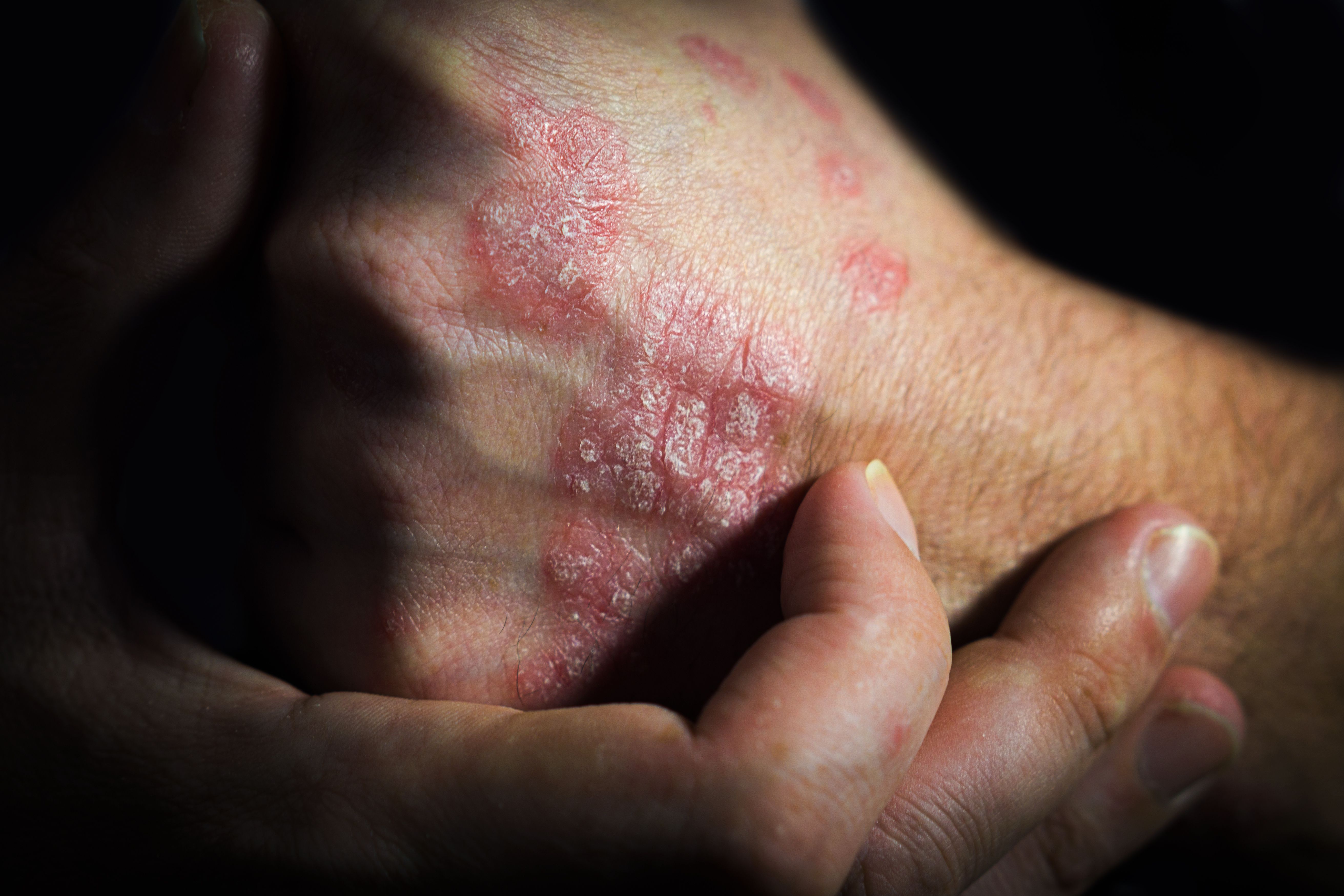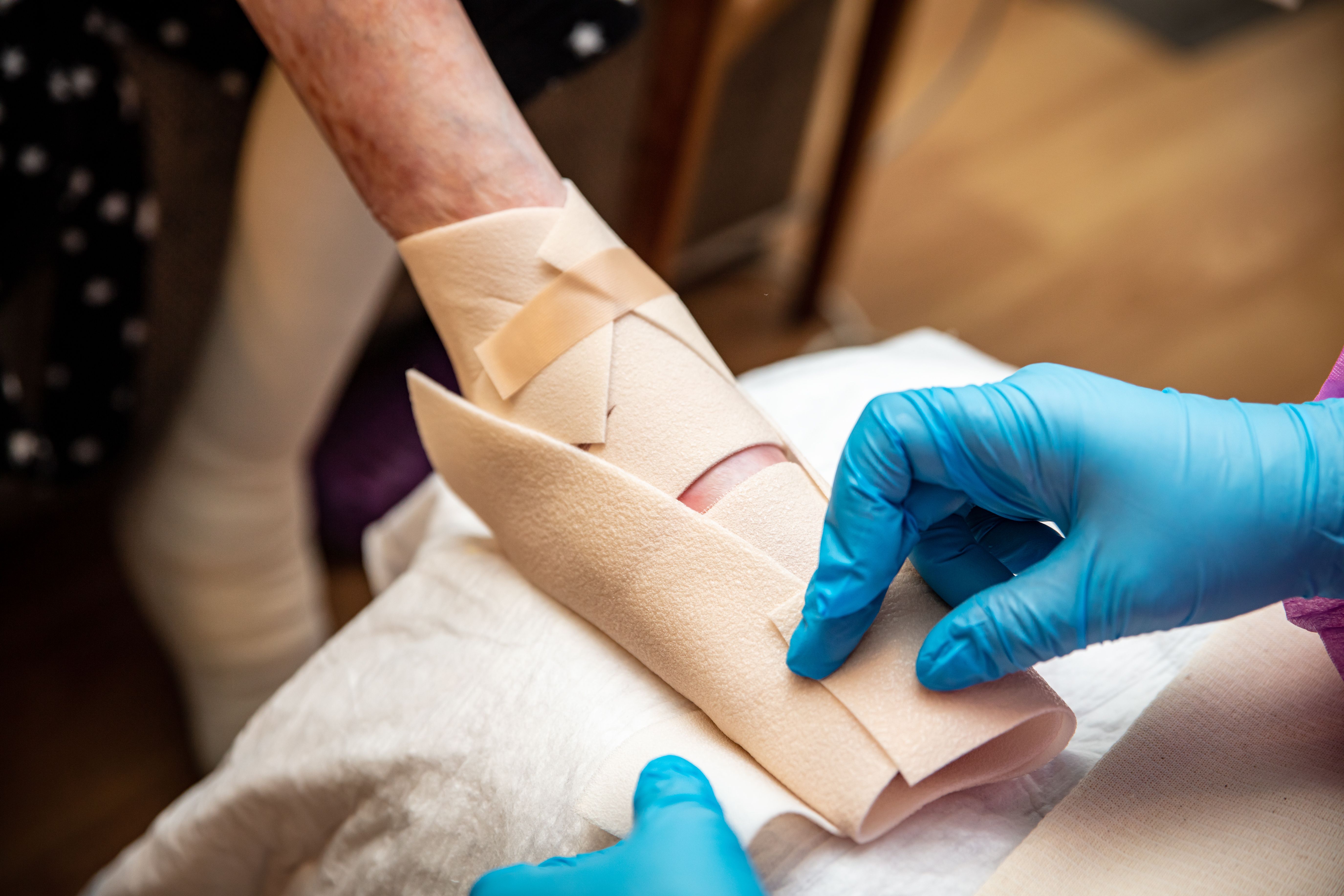- Acne
- Actinic Keratosis
- Aesthetics
- Alopecia
- Atopic Dermatitis
- Buy-and-Bill
- COVID-19
- Case-Based Roundtable
- Chronic Hand Eczema
- Chronic Spontaneous Urticaria
- Drug Watch
- Eczema
- General Dermatology
- Hidradenitis Suppurativa
- Melasma
- NP and PA
- Pediatric Dermatology
- Pigmentary Disorders
- Practice Management
- Precision Medicine and Biologics
- Prurigo Nodularis
- Psoriasis
- Psoriatic Arthritis
- Rare Disease
- Rosacea
- Skin Cancer
- Vitiligo
- Wound Care
News
Article
A Paradox of Anti-Inflammatory Biologics
Author(s):
Biologics work by inhibiting inflammatory cytokines, but a small percentage of patients may experience “paradoxical psoriasis.”
Bilateral psoriasis eruption that arose during adalimumab treatment for inflammatory bowel disease | Image credit: DermNet

Nothing has changed the treatment of inflammatory diseases such as psoriasis, rheumatoid arthritis and inflammatory bowel disease quite as much s the advent of anti-inflammatory biologics. But in rare cases, and sometimes years after starting a biologic, patients develop psoriasis. Researchers are beginning to understand these cases of “paradoxical psoriasis” and are looking for biomarkers that might help predict which patients will be affected, according to a review paper published in Dermatologic Clinics.
Corresponding author William Damsky, MD, PhD, of Yale School of Medicine, and his colleagues say that patients with mild cases of paradoxical psoriasis can often stay on the medication causing the condition while the psoriasis is treated with a topic agent. In more serious cases, the treatment with “inciting drug” may need to stop, which usually results in the paradoxical psoriasis going away. The authors suggest that patients treated with biologics should be closely monitored for paradoxical psoriasis, the development of other inflammatory conditions that arise when people are taking anti-inflammatory biologics and for cutaneous T-cell lymphoma.
Paradoxical psoriasis is a well-recognized condition that has been studied extensively. A Pubmed search on the term yielded 100 citations going back decades.
According to the review by Damsky and his colleagues, research shows that between 3.8% and 10.7% of patients treated with anti-tumor necrosis factor-alpha (TNF-a) biologics are affected. The anti-TNF-a biologics include Humira (adalimumab) and Enbrel (etanercept). It occurs less often among treated with Dupixent (dupilumab) affecting between 1.88% and 3.88% of those treated with biologic, which blocks interleukin (IL) -4 and IL-13. Damsky and his co-authors described paradoxical psoriasis among those treated with Stelara (ustekinumab) as being exceedingly rare. Only nine cases have been reported in the published medical literature.
Paradoxical psoriasis most often occurs among those who have never had psoriasis but a small percentage of the time — about 10% —someone with psoriasis experiences an exacerbation of the disease, according to the Dermatology Clinics review. It typically occurs as psoriasis vulgaris, the most common type of psoriasis, and in about one-third of patients, the palms of the hands and the soles of the feet (palmoplantar involvement) are affected.
The understanding of paradoxical psoriasis and how biologics that quell inflammation can sometimes generate a condition that is itself cause by inflammation is still incomplete. “It remains unclear what triggers PP [paradoxical psoriasis] in that only 2% to 5% of patients develop PP and the latency is often protracted, indicating that there is likely another key (and unknown) determining factor,” wrote Damsky and his co-authors. Nonetheless, they shared some ideas about the pathogenic mechanisms that may underline of the paradoxical psoriasis. Inhibition of TNF-a may result in a “negative cross talk” with type 1 interferons, they note, citing a 2018 research finding by Swiss researchers that type 1 interferons levels (interferon-a and interferon-b) were higher in paradoxical psoriasis than in normal psoriasis vulgaris. The Swiss team also found that levels of plasmacytoid dendritic cells, which produce type 1 interferons in abundance, were also higher. According to Damsky and his colleagues, other research since has produced similar results.
Reference
Abdelghaffar M, Kottilil S, Murphy MJ, Cohen JM, Damsky W. Paradoxical psoriasis. Dermatol Clin. 2024;42(3):471-480. doi:10.1016/j.det.2024.02.011
[This article was originally published by our sister publication, Managed Healthcare Executive.]
Newsletter
Like what you’re reading? Subscribe to Dermatology Times for weekly updates on therapies, innovations, and real-world practice tips.









